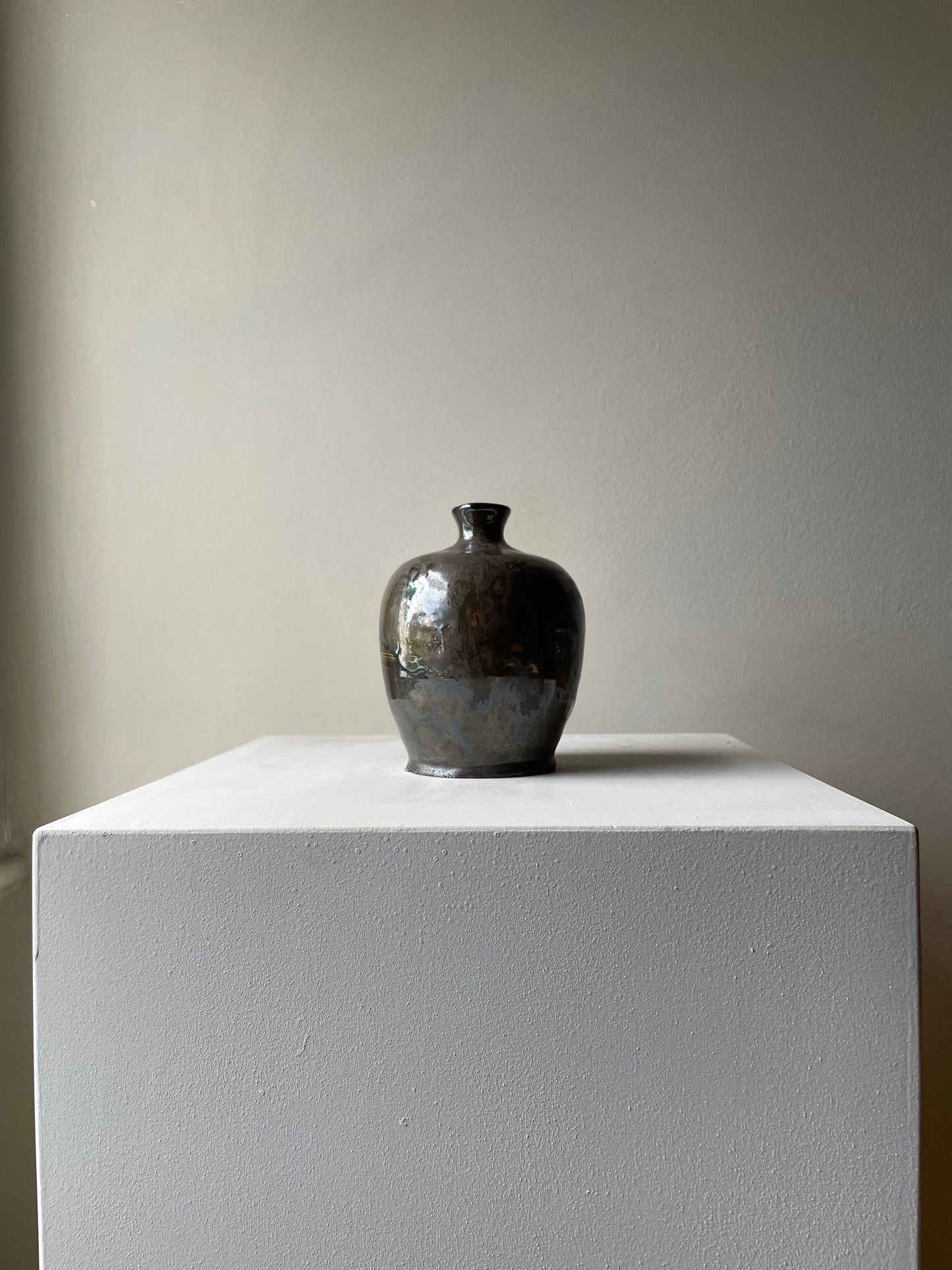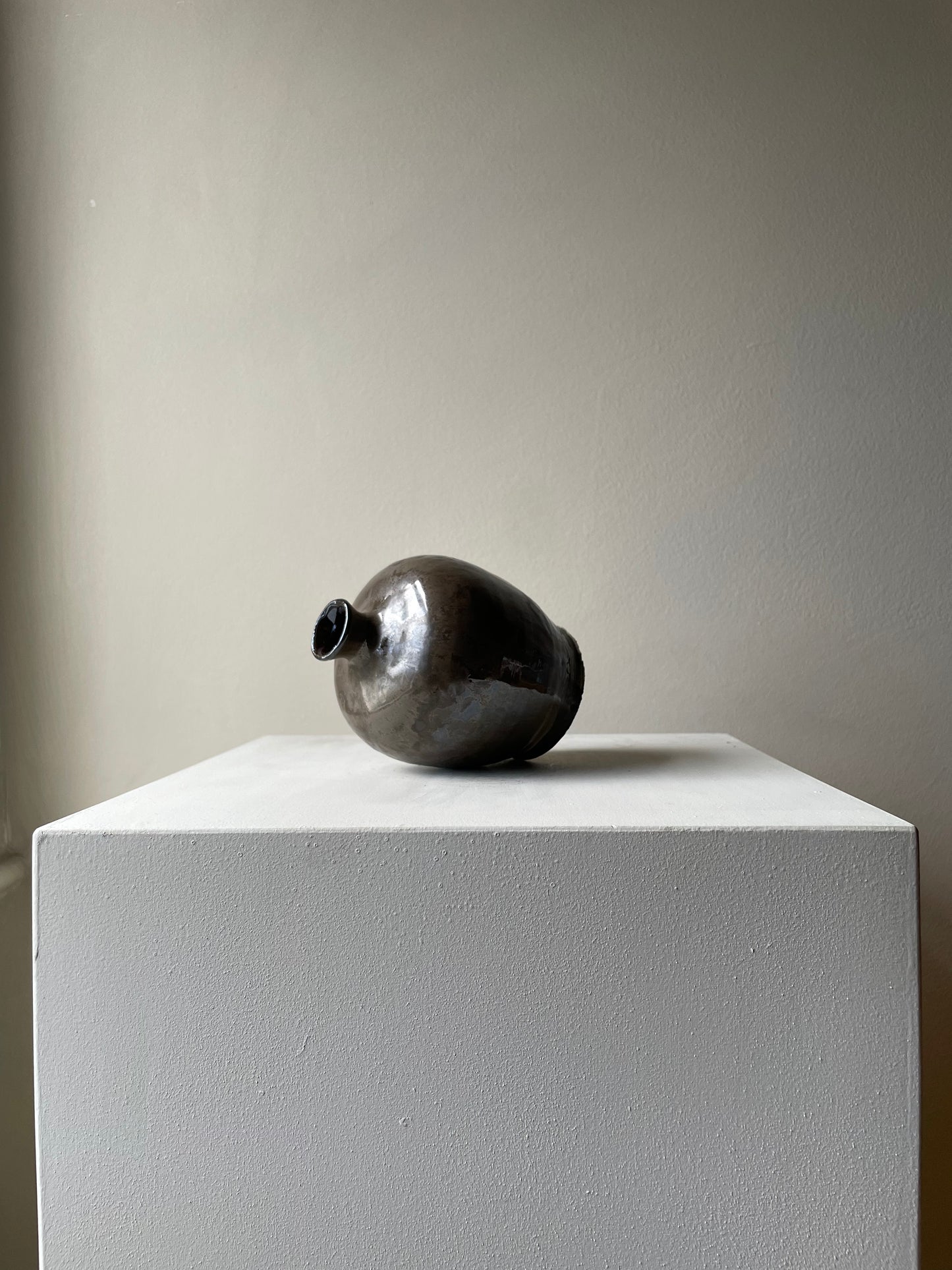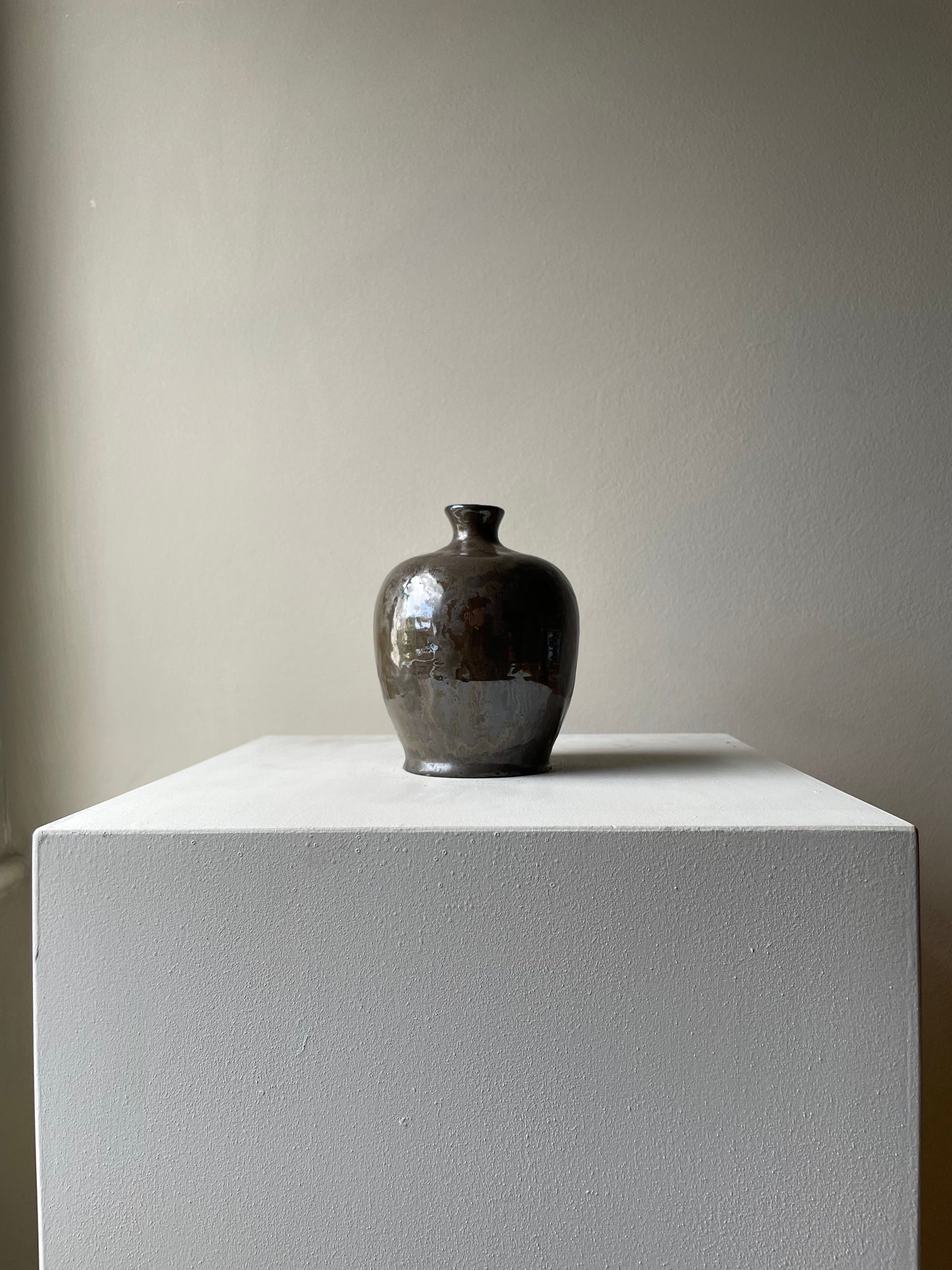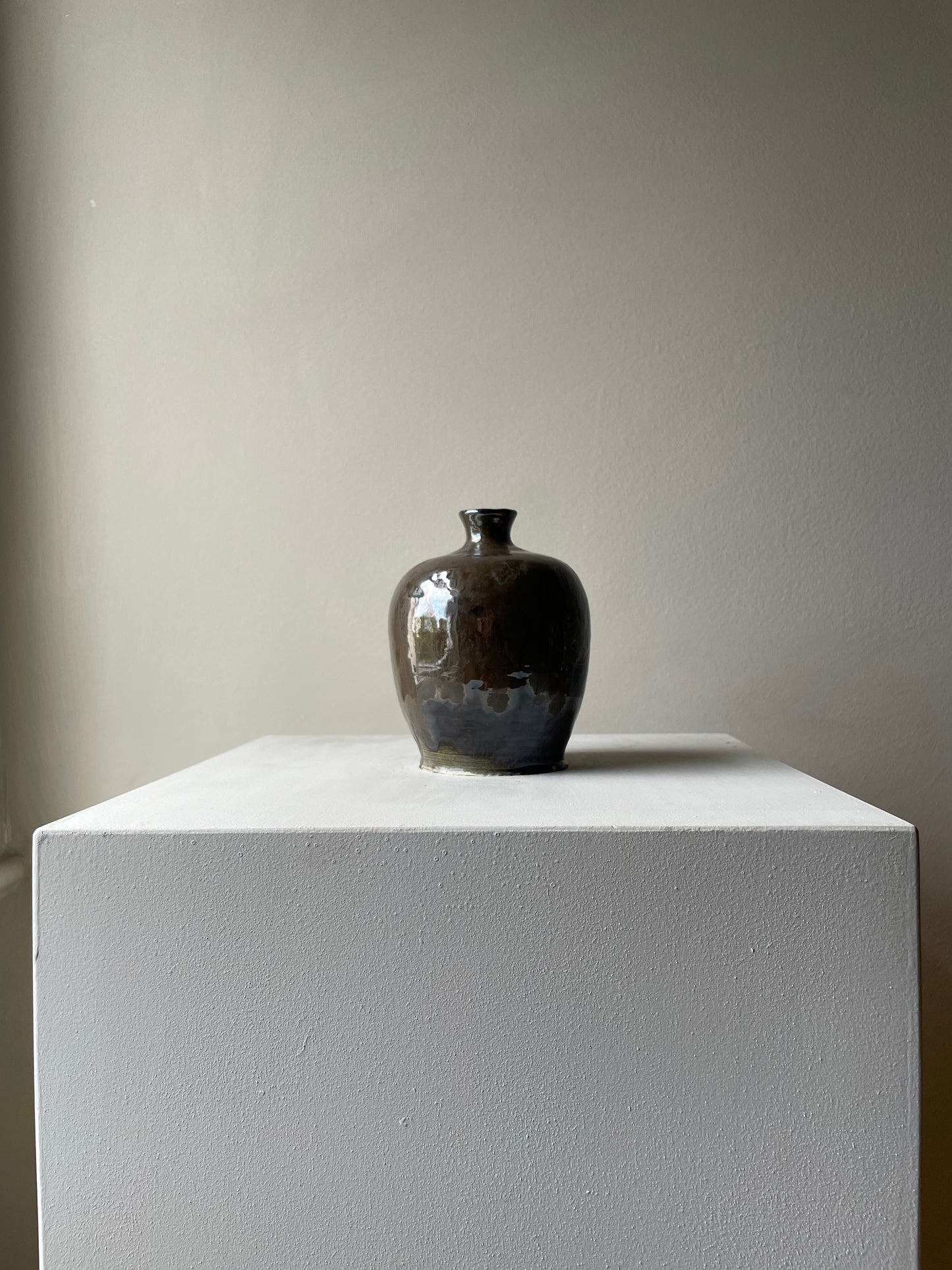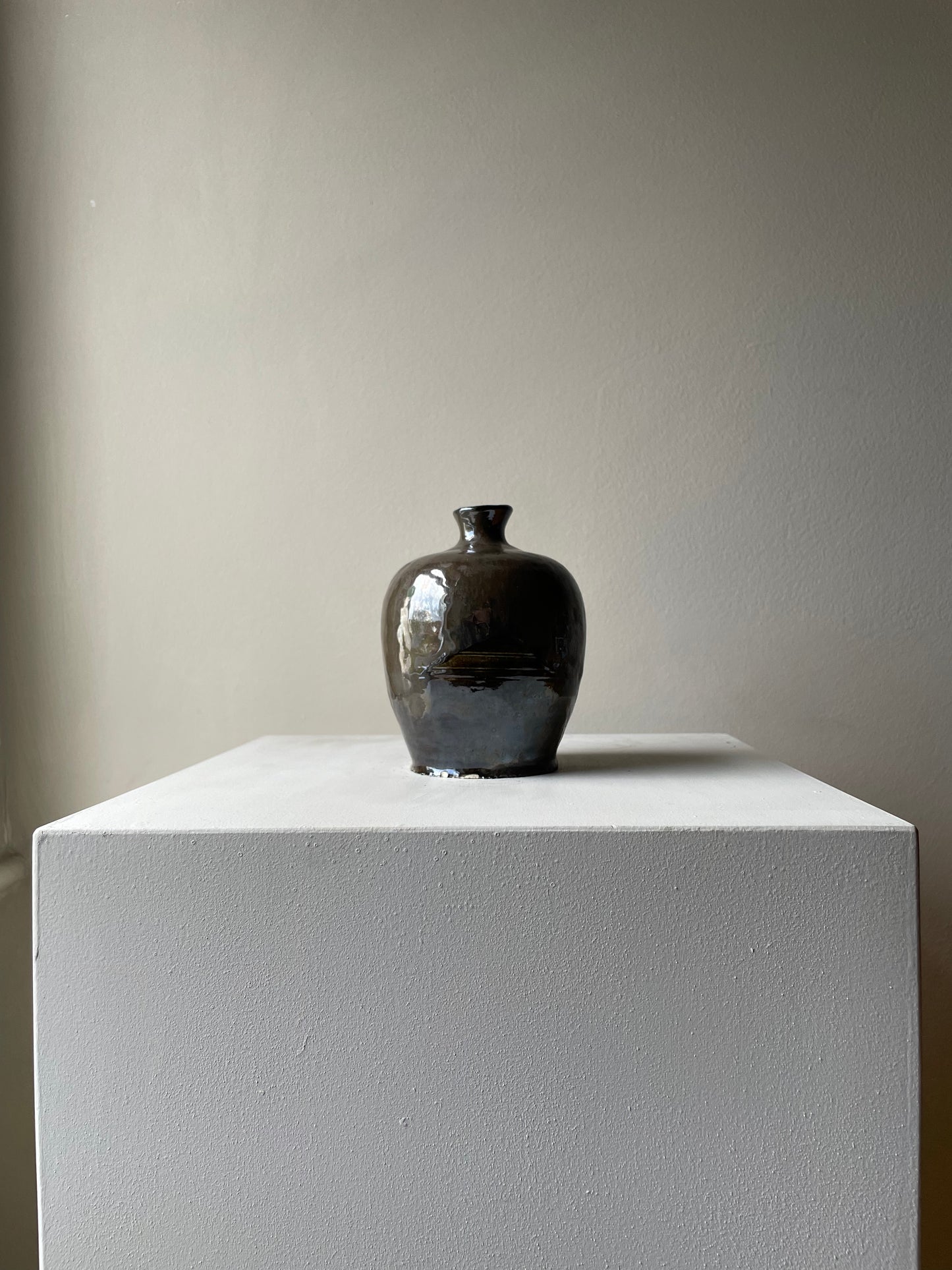Amber Moly Jug
Amber Moly Jug
Couldn't load pickup availability
Tan and amber moly crystalline.
approximate h 5" x diam. 3.5"
Wabi-sabi is a Japanese philosophy that finds beauty in imperfection and accepts the natural cycle of growth, decay, and death. It's deeply rooted in Zen Buddhism and emphasizes simplicity, authenticity, and the appreciation of objects and environments as they naturally age. Wabi-sabi is about the appreciation of the transient and the imperfect, celebrating cracks, asymmetry, and roughness as markers of time and existence rather than flaws.
In the context of ceramics and art, wabi-sabi manifests as an appreciation for pieces that embody these principles. A wabi-sabi style ceramic vessel, therefore, would likely feature irregular shapes, textures that may include cracks or uneven glazing, and a natural, subdued color palette. These characteristics are not seen as defects but as essential elements that highlight the material’s natural beauty and the artist's hand in its creation.
Forms of wabi-sabi art extend beyond ceramics, touching various aspects of design and living—from architecture and interior design to gardening and everyday objects. Common characteristics include:
- Natural Materials: Using materials that show their age and wear naturally over time, like wood, stone, and metal.
- Asymmetry and Irregularity: Embracing uneven, unforced shapes and layouts in design and art.
- Simplicity and Minimalism: Focusing on the essentials in a way that brings peace and tranquility to the space or object.
- Texture and Variability: Appreciating the tactile qualities of materials and the variations in their appearance.
- Subdued Colors: Preferring colors that blend harmoniously with nature, often muted or earthy tones.
Wabi-sabi art is not about creating something in a traditionally "beautiful" way but about expressing the authentic essence of nature and human life. It encourages us to see the beauty in the "imperfect," to slow down, and to recognize the profound in the simple. In embracing wabi-sabi, there's a deep acknowledgment of the beauty that comes with natural processes and the passage of time.
Share
